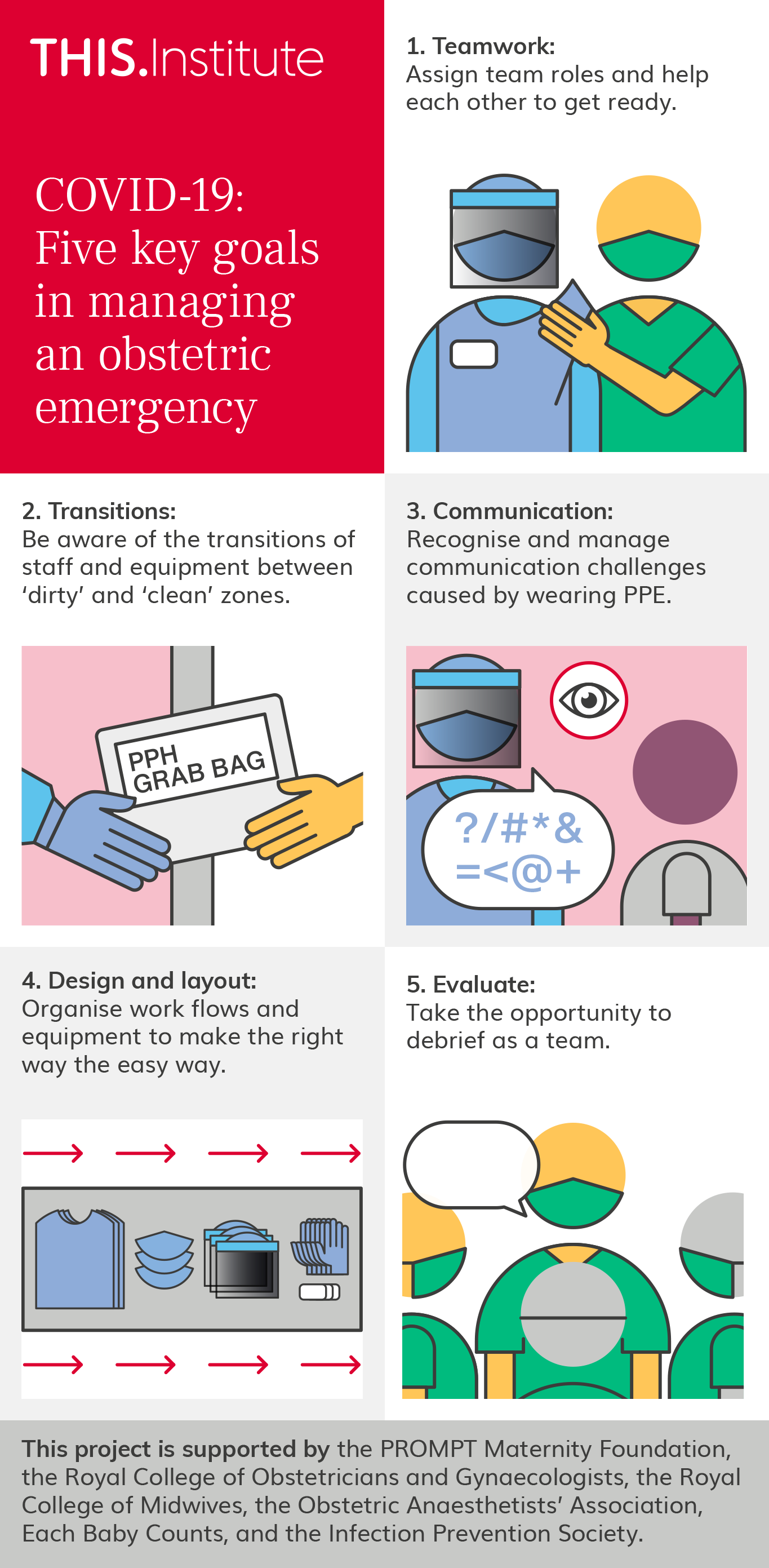The COVID-19 pandemic provides new challenges for the safety of people receiving and providing maternity care.
The project, conducted in collaboration with the PROMPT Maternity Foundation, involved a rapid-response consultation exercise to understand what good looks like for managing obstetric emergencies in women with suspected or confirmed COVID-19.
Over 100 participants* with expertise in maternity care, infection prevention and control, and human factors took part in the consultation, enabled by THIS Institute’s research platform, Thiscovery.
They first offered recommendations to improve practices illustrated in a video for managing an obstetric emergency in a woman with suspected or confirmed COVID-19. They then took part in a two-stage consensus-building exercise, generating 16 recommendations on which there was a high level of agreement.
A new video illustrating these improved practices – ranging from using grab-bags for emergency kit through to ensuring good communication with families – was then produced, along with other resources.
Please accept cookies or click here to view this content.
At a glance
Download resources
This project is supported by the PROMPT Maternity Foundation, the Royal College of Obstetricians and Gynaecologists, the Royal College of Midwives, the Obstetric Anaesthetists’ Association, Each Baby Counts, and the Infection Prevention Society.
*With thanks to
With thanks to: Alison Phillis, Andrew Cooney, Ann Kerrane, Annette Anderson, Barbara K. Burian, Ben Tipney, Caroline Everden, Caroline Lacy, Cerys Scarr, Celine McKeown, Courtney Grant, D Rangappa, Dale Richards, Dominic Furniss, Elaine Baxter, Eman Jwarah, Fran Ives, Giulia Miles, Gyuchan Thomas Jun, James Stevenson, Jane Higgs, Jo Wailling, Joanna Chapman, Juliet Wood, Karen Wright, Laura Lewis, Loretta Ogboro-Okor, Lynne Crewe, M Cometa, Mair Davies, Matt Barron, Michelle Keeler, N Masood, Nadia Hikary-Bhal, Nick Taylor, Nina Johns, Owen Marsh, Pamela Page, Rachel Corry, Sandra Gosling, Sarah B Bell, Sarah Hookes, Sharon Pickering, Sine Masuku, Stephen Tipper, Sue Millward, Tanya Matthews, Theresa Fitzpatrick, Tracey A. Herlihey, Valerie Noble, Vincent Pargade
Related content from our open-access series, Elements of Improving Quality and Safety in Healthcare











